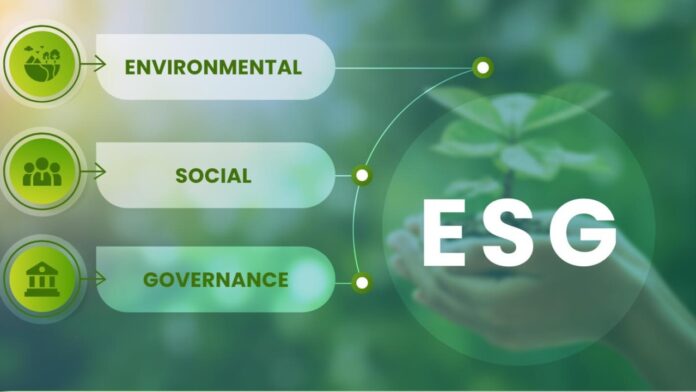Sustainability and Environmental, Social, and Governance (ESG) reporting in Cambodia is still an emerging practice, primarily driven by global trends, international investors, and the country’s integration into regional and global markets.
1. Regulatory Environment
- Government Initiatives: The Cambodian government is gradually recognizing the importance of sustainability, particularly in key sectors like agriculture, tourism, and manufacturing. However, comprehensive ESG regulations are still in the development stage. The Ministry of Environment and the Ministry of Industry, Science, Technology, and Innovation are promoting environmental sustainability, but a full regulatory framework is yet to be established.
- Stock Exchange Guidelines: The Cambodia Securities Exchange (CSX) has not mandated ESG reporting yet, but there is growing pressure from investors and international organizations for companies listed on the CSX to adopt sustainability practices.
2. Corporate Adoption
- Multinational Influence: Many multinational companies operating in Cambodia, especially in the garment and manufacturing sectors, adhere to ESG standards set by their parent companies. These include sustainability reporting and compliance with international labor and environmental standards.
- Local Companies: ESG adoption among local companies is still in its early stages. Larger conglomerates and those with foreign investments are more likely to engage in ESG reporting, often driven by the expectations of international stakeholders.
3. Key Sectors
- Agriculture: As a major sector in Cambodia, agriculture is under scrutiny for its environmental impact. Companies involved in exporting rice, rubber, and other agricultural products are beginning to adopt more sustainable practices to meet global demand for ethically sourced goods.
- Garment Industry: The garment sector, a significant driver of Cambodia’s economy, is under pressure to improve labor conditions and environmental practices. Global brands require transparency and sustainability from their suppliers, driving ESG reporting in this sector.
- Tourism: Cambodia’s tourism industry, rich in cultural heritage, is increasingly adopting sustainable practices to protect its natural and historical assets. These efforts include reducing environmental impact and promoting responsible tourism.
4. Challenges
- Lack of Awareness and Expertise: Many companies in Cambodia lack a clear understanding of ESG concepts and the benefits of sustainability reporting. Capacity-building initiatives are needed to help local businesses understand and implement ESG practices.
- Data Collection and Reporting: Reliable data is crucial for effective ESG reporting. However, many Cambodian companies struggle with data collection and management, making it difficult to produce comprehensive reports.
- Economic Priorities: As a developing economy, Cambodia often prioritizes economic growth over environmental or social considerations, creating challenges in balancing these priorities.
5. Opportunities
- Investor Demand: The increasing interest from foreign investors in ESG-compliant companies presents an opportunity for Cambodian businesses to attract investment by improving their sustainability practices.
- Capacity Building: International organizations and NGOs are actively working to promote ESG awareness and build capacity within Cambodian businesses. These efforts can help accelerate the adoption of sustainability practices across various sectors.
- Regional Integration: As Cambodia integrates further into ASEAN and other regional frameworks, there will be more opportunities for the country to align with regional ESG standards and practices.
Conclusion: While Cambodia is at an early stage in ESG reporting, momentum is growing due to external pressures and the gradual recognition of sustainability’s importance for long-term economic growth. Continued efforts in capacity building, regulatory development, and stakeholder engagement will be crucial for advancing ESG practices in the country.
Case Study: Smart Axiata’s Sustainability Reporting
Smart Axiata is leading sustainability reporting in Cambodia, having launched its Sustainability Report 2022 on August 23, 2023. This report underscores the company’s commitment to transparency and responsible business practices, setting a benchmark in the telecommunications industry.
Key Aspects of Smart Axiata’s Sustainability Reporting
Four Major Pillars:
- Beyond Short-Term Profits: Smart Axiata focuses on long-term contributions to Cambodia’s development. In 2022, the company invested $255 million in capital and operating expenditures, contributed $121 million to public finances, and allocated funds to bridge the digital divide.
- Nurturing People: The company promotes inclusivity and diversity in its workforce, with women holding 33% of senior leadership roles. It also invests in employee training and well-being, achieving a 79% employee engagement score in 2022.
- Process Excellence: Smart Axiata prioritizes operational efficiency and responsible business practices to enhance service delivery and stakeholder satisfaction.
- Protecting Planet and Society: The company has implemented environmental initiatives, such as installing solar panels across over 1,000 sites, and invested over $650,000 in community programs focused on digital advancement and education.
Stakeholder Engagement: The launch event for the report was attended by nearly 250 representatives from various sectors, including government, NGOs, and business partners, highlighting Smart Axiata’s collaborative approach to sustainability.
Recognition and Impact: Smart Axiata’s efforts have received positive feedback from partners and stakeholders, reinforcing its reputation as a reliable and responsible corporate entity in Cambodia. The company aims to create lasting value and foster trust through its sustainability initiatives.
Conclusion:
Smart Axiata is at the forefront of sustainability reporting in Cambodia, integrating comprehensive sustainability practices into its business model. The company significantly contributes to the country’s socio-economic development while maintaining a focus on environmental stewardship and community well-being.
Starting your sustainability journey can feel daunting, but you don’t have to navigate it alone. MLW Consultancy and Thrive Ventures Consulting Pte. Ltd. are here to support you at every step, guiding you from the initial stages to achieving a sustainable future. Let us help you kickstart your ESG and sustainability initiatives today.
Discover how we can assist you: Learn more.



